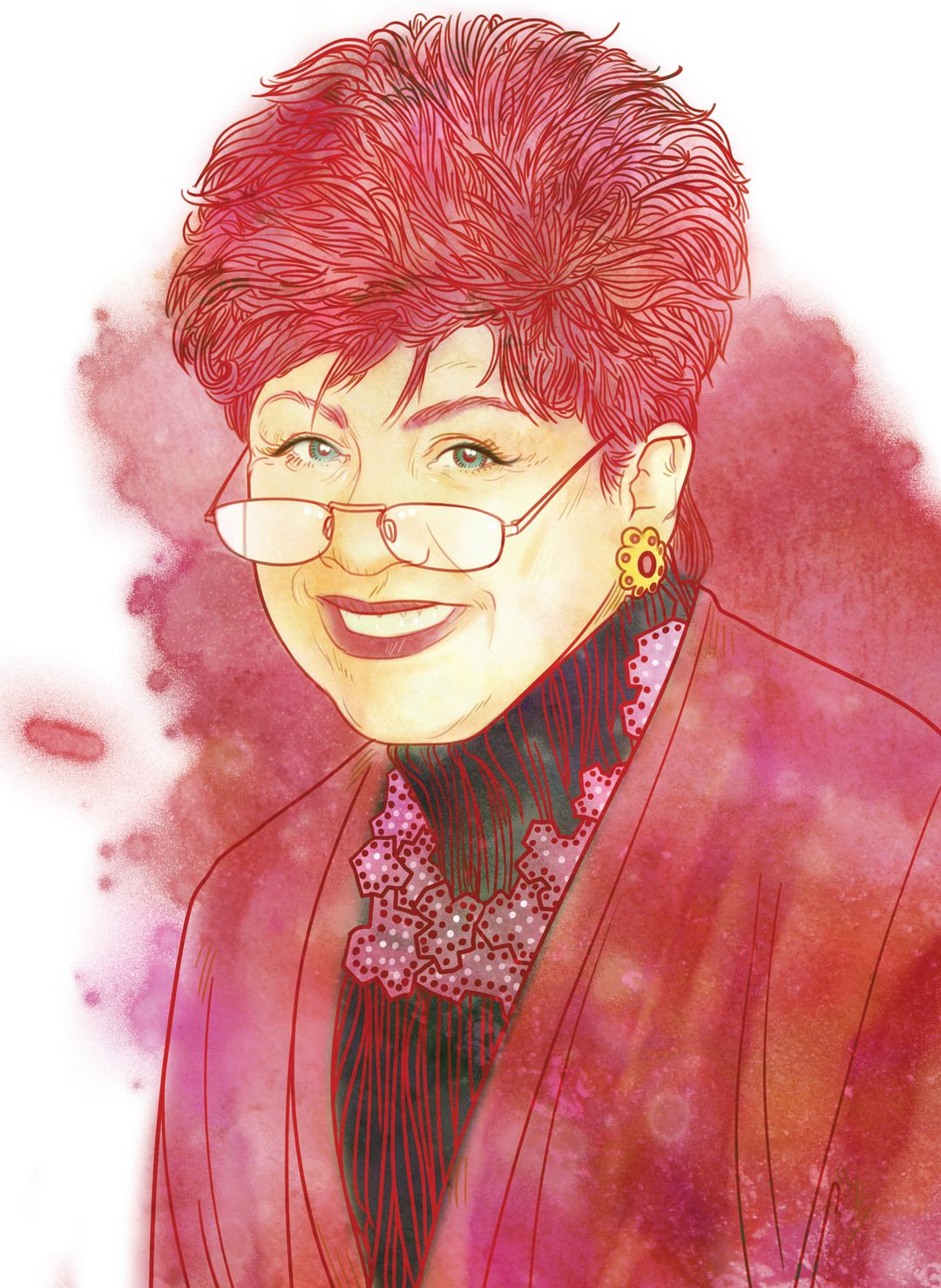Remembering Marjorie North

Marjorie North.
Image: Andrew Theophilopoulous
I never thought I would have to explain Marjorie North to Sarasota, but if you’ve moved here in the past 10 years or are a small child, or can’t read, then it’s possible that you are unfamiliar with her legend. For a while, from 1986 until she retired in 2006, she was one of the most powerful people in town.
She wrote a column for the Sarasota Herald-Tribune called “Let’s Talk.” Yes, the title was bland and its ostensible purpose was polite chatter about the town’s social life, with a heavy emphasis on charity and fundraising. But Marjorie made it much more than that. She used her column to lead public opinion. She championed causes, she pushed things along, she scolded when necessary, she got people hired—and fired. And at the center of it all was her larger-than-life personality.
Back in those days there was no Facebook or social media. If you had something you wanted publicity for, Marjorie’s column was the gold standard. She held the keys to the publicity kingdom. Everybody read it—certainly the social, business and governmental crowd, whom she referred to as “the movers and shakers.” But such was Marjorie’s eye for news and how to present it that ordinary folks read it, too. Whenever my name was mentioned, all my neighbors knew immediately and were properly impressed.
I first bonded with Marjorie back in 1987 when a bunch of us decided to put on a benefit to raise money for AIDS treatment and awareness. A committee was formed, and though Marjorie couldn’t technically join—she was a journalist, after all, and the newspaper’s rules didn’t allow her to join committees—she was there at every meeting, and her ideas and insights were always the most valuable.
An AIDS benefit back in those days was something pretty radical for Sarasota, or any city, for that matter, and the going was tough. We gave a reception for the town’s medical community to get them involved. It was an elegant affair at a waterfront mansion, and exactly two doctors showed up. All those shrimp and crab cakes wasted. The next day Marjorie wrote a scathing column that was headlined “The Doctors Called in Sick.”
Back in those days Marjorie was more liberal than she later became. Her concerns were those of a Democrat—social justice and anything that empowered women. She was, after all, a single mother raising three daughters on a notoriously stingy Herald-Tribune salary. She had a real antipathy towards the town’s debutantes, and gave them as little publicity as possible. Later, after she married her third husband, Bill Hirons, she shifted to the more conservative side of things. She became fiercely loyal to her friend, Katherine Harris, and was one of the former Republican congresswoman’s staunchest defenders.
It could be said that Marjorie became one of the people she wrote about. She started out as a working woman and ended up married to a well-to-do businessman, living in The Oaks, socially prominent herself. But what made her something more was her talent as a writer. There was a touch of Balzac to her—her field was human nature, and just underneath the glitter of the parties and the arts and business deals transforming Sarasota was a profound level of empathy about what people go through. She used to say that there was no difference between the social crowd she wrote about and the people who lived in trailer parks. They all had financial worries, kids on drugs, medical problems and rocky marriages. She understood the human condition, and that’s what made her column so relevant and long-lasting.
The last long talk I had with Marjorie was about six months ago. We sat in her living room and spent two hours going over what her life was like at the moment. It was sad, to be perfectly honest. Her husband, Bill, was 93 and in a nursing home, suffering from dementia and declining. Her own health was bad. She had broken a shoulder and was having a hard time recovering. She had fallen in her garden and lay there for two hours before somebody found her. And then there were recurring problems with her liver that had sapped her famous energy. She told me she was hoping for a liver transplant.
But she was still plugging away and making plans. She was moving to an apartment downtown. She was writing a play—she’d already written several, produced at Florida Studio Theatre—about the world of nursing homes and caregivers. Her daughters were around, giving her great comfort, and she adored her only grandchild, 10-year-old Bella. She was delighting in the antics of Donald Trump. When I left I had no idea the end was so near.
Marjorie’s memorial service was held at Michael’s On East, appropriate since it was, in effect, her office. The place looked lovely, beautifully lit, with lots of food and drink and small tables scattered around. The old guard turned out in force. In fact, it occurred to me that this might be their last big gathering. The town has changed too much. New people and new money have moved in. Information is disseminated on Facebook and social media, not by the newspaper. The old gods are dead and one of them is Marjorie.
But what a run she had. She was like a benevolent Hedda Hopper or Walter Winchell. Nothing got past her, and her influence was incalculable. She had an ego, sure. She would sometimes refer to herself in the third person, as if she were a force outside herself. But she never got mean.
Well, hardly ever. She and I had a rivalry going, a feud that lasted almost 30 years. We were, as we constantly told ourselves, the two best writers in Sarasota. I’d insult her in my column, then she’d insult me right back. And though I hate to admit it, her insults were better. Because underneath each one was a note of genuine affection.
That was Marjorie’s other big talent—her genius for friendship. When we said goodbye last summer she gave me a present. It’s a little newsstand, maybe four inches high, with tiny magazines and newspaper spread out in rows, a little collectible-type thing.
“I’m giving you this because you’re the best writer in Sarasota,” she said, and kissed me on the cheek. Only as I drove home did I realize that for once, she was wrong. The best writer is not the one who prettily strings together words. The best writer is the one who has an impact, who inspires people, who gets things done. No, Marjorie—you were the best; we’ll never see anyone like you again.



